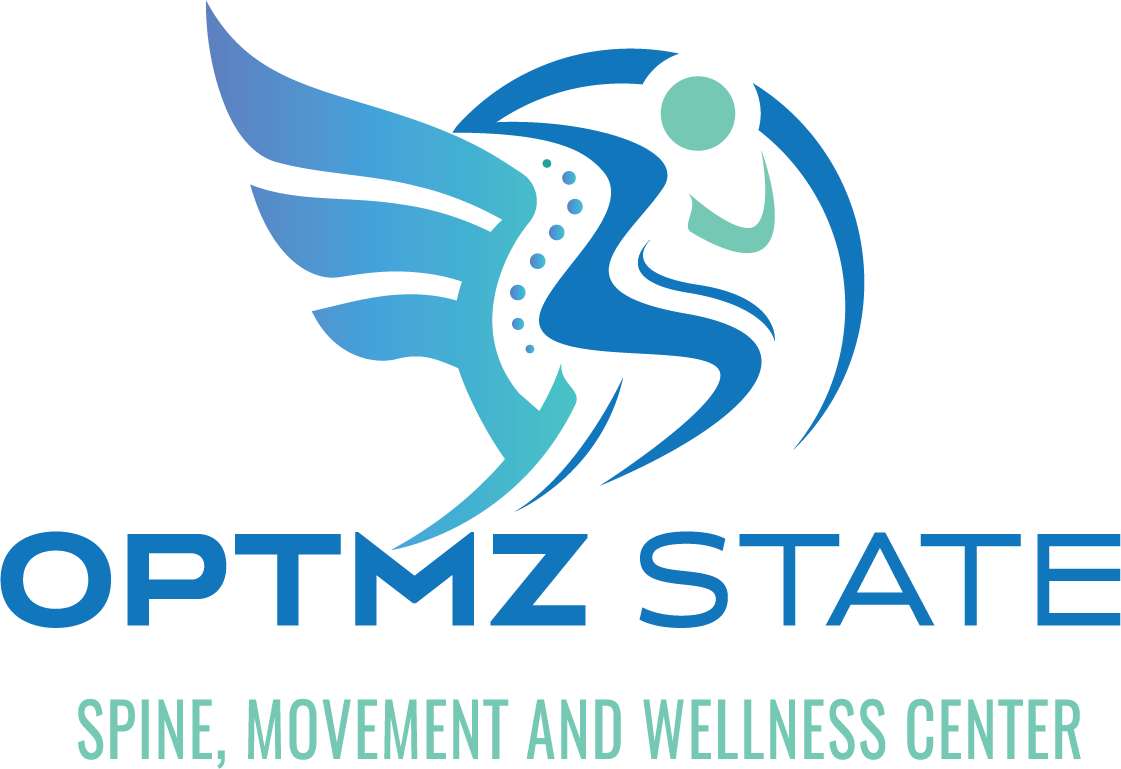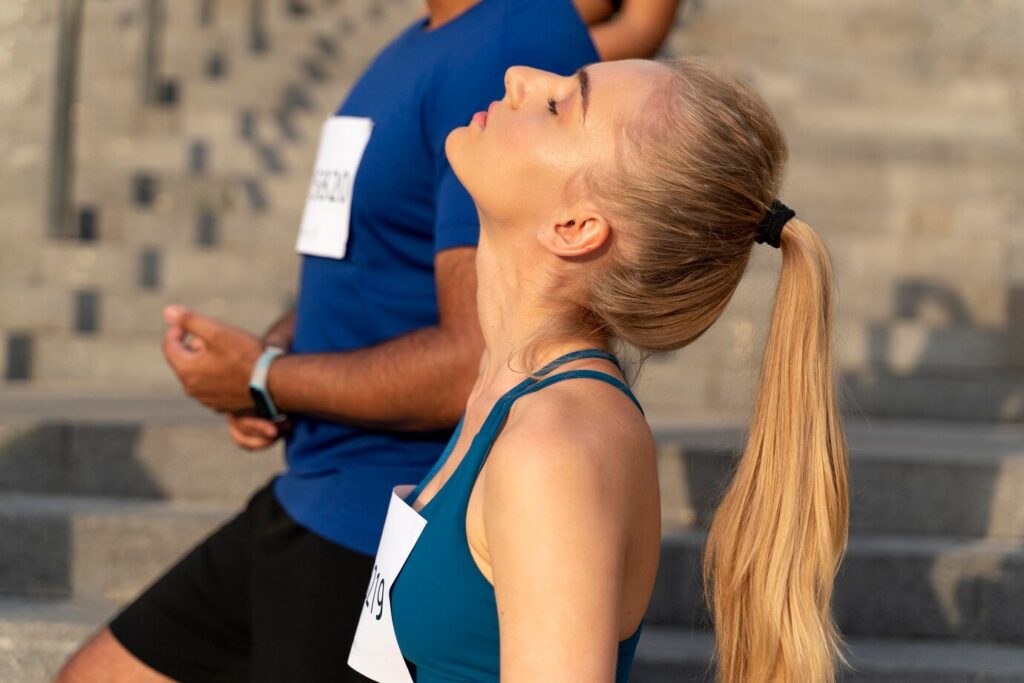You might be surprised to learn that 75% of athletes find relief through alternative pain management methods. As traditional medications often come with unwanted side effects, more athletes are turning to options like acupuncture, yoga, and herbal remedies. These approaches not only help manage pain but also enhance recovery and performance. This shift raises important questions about the effectiveness of these treatments and their long-term implications. What might this mean for the future of sports medicine and athlete health?
Rise of Alternative Pain Relief
Athletes increasingly seek alternative pain relief methods as traditional treatments often fall short or come with unwanted side effects. You might find that over-the-counter medications, while effective for some, can lead to gastrointestinal issues, dependence, or even long-term health problems. This growing concern pushes many athletes to explore options that align better with their physical needs and holistic wellness goals.
As you immerse yourself in the domain of alternative pain relief, you'll discover a variety of methods gaining traction among sports professionals. These methods prioritize natural healing and aim to minimize adverse effects.
You might consider practices such as acupuncture, which targets specific points in the body to alleviate pain and promote recovery. Or perhaps you'll explore the benefits of massage therapy, which can help relieve tension and improve circulation, allowing you to perform at your best.
Additionally, you could look into nutritional approaches, like anti-inflammatory diets packed with omega-3 fatty acids and antioxidants, which can greatly reduce pain and enhance recovery. Mindfulness techniques, such as yoga and meditation, also play a vital role in managing stress and pain perception.
As you evaluate your options, remember that the effectiveness of alternative pain relief varies from person to person. What works wonders for one athlete mightn't yield the same results for you.
Thus, it's important to consult with professionals and experiment to find the best fit for your unique circumstances, ensuring you can continue to excel in your sport.
Popular Alternative Therapies
Many athletes are turning to popular alternative therapies to enhance their recovery and manage pain more effectively. These therapies offer a holistic approach, allowing you to tap into your body's natural healing abilities while minimizing reliance on pharmaceuticals.
Here are some of the most sought-after alternative therapies that you might consider:
- Massage Therapy: Imagine skilled hands working over your muscles, releasing tension, and promoting circulation.
- Yoga: Picture yourself flowing through poses, blending breath and movement to improve flexibility and reduce stress.
- Chiropractic Care: Envision a professional aligning your spine, creating balance, and relieving discomfort in a targeted way.
- Herbal Remedies: Visualize natural herbs and supplements, offering anti-inflammatory benefits and promoting overall wellness.
- Cryotherapy: Think of stepping into a chamber filled with frigid air, invigorating your body and reducing inflammation in just a few minutes.
These therapies not only provide pain relief but also contribute to overall well-being. By exploring these options, you might find a combination that works best for your individual needs.
Remember, alternative therapies often complement traditional medical treatments, so it's important to consult with a healthcare professional before diving in. This way, you can tailor your recovery journey to fit your lifestyle and athletic goals, ensuring you stay at the top of your game while prioritizing your health.
Embracing these popular alternative therapies could be the key to accessing your full potential as an athlete.
Acupuncture and Its Benefits
Acupuncture can be a game-changer in your pain management routine.
This ancient practice not only helps relieve discomfort but also enhances your recovery process, allowing you to bounce back faster.
If you're looking for effective ways to support your athletic performance, acupuncture might just be the solution you need.
Pain Management Techniques
Pain management techniques, like acupuncture, have gained popularity among athletes seeking relief from discomfort and enhanced recovery. You might find that acupuncture offers a holistic approach, targeting specific points in your body to alleviate pain and improve overall well-being.
This ancient practice involves inserting thin needles into the skin, which can stimulate your body's natural healing processes.
Imagine experiencing:
- A soothing sensation as the needles gently pierce your skin
- A rush of endorphins flooding your system, easing your pain
- An increased sense of relaxation, melting away tension in your muscles
- A revitalized energy flow, invigorating your performance
- A clearer mind, allowing you to focus on your training and competition
Acupuncture can be particularly beneficial for you, whether you're dealing with chronic pain, recovering from an injury, or simply looking to enhance your athletic performance.
It's a drug-free approach that fosters both physical and mental wellness, supporting your journey as an athlete. By incorporating this technique into your routine, you may discover new levels of comfort and resilience, allowing you to push your limits and achieve your goals.
Enhanced Recovery Process
The enhanced recovery process is essential for athletes looking to bounce back from intense training and injuries. One method gaining traction is acupuncture, which offers numerous benefits that can speed up your recovery. By stimulating specific points on your body, acupuncture helps release endorphins, reducing pain and promoting relaxation.
You'll find that acupuncture aids in improved blood circulation, which is vital for delivering nutrients and oxygen to your muscles. This enhanced circulation can help flush out toxins and reduce inflammation, making it easier for your body to heal.
Plus, by addressing both physical and mental stress, acupuncture can enhance your overall sense of well-being. Incorporating acupuncture into your recovery routine may also lead to better sleep quality, allowing your body to repair itself more effectively.
The combination of physical relief and mental clarity can also boost your performance in future training sessions. If you're struggling with recovery, consider trying acupuncture. It's a holistic approach that not only targets pain relief but also supports your entire recovery process, helping you get back to doing what you love faster and more efficiently.
The Role of Yoga
Yoga can be a game-changer for athletes looking to enhance flexibility and balance.
By incorporating stress reduction techniques, you can't only improve your performance but also manage pain more effectively.
Let's explore how these benefits can elevate your training and recovery.
Enhanced Flexibility and Balance
While many athletes focus on strength and endurance training, incorporating yoga into your routine can greatly enhance flexibility and balance.
The benefits of yoga go beyond just physical improvements; they can transform the way you move and perform in your sport. By integrating yoga, you'll notice a significant increase in your range of motion and stability, which can lead to better performance and reduced risk of injuries.
Imagine yourself experiencing:
- The graceful flow of a sun salutation, warming up your body.
- A deep stretch in a pigeon pose, releasing tight hips.
- The steady focus required in tree pose, sharpening your balance.
- The calming breath during a seated forward bend, grounding your mind.
- The controlled strength developed in warrior poses, enhancing your core stability.
These elements not only contribute to your physical capabilities but also encourage a deeper connection between your mind and body.
As you embrace yoga, you'll find that improved flexibility and balance can elevate your athletic performance, allowing you to excel in your chosen sport while enjoying the process.
Stress Reduction Techniques
Finding calm through yoga can be a game-changer for athletes dealing with stress. When you practice yoga, you're not just stretching your muscles; you're also calming your mind. This practice encourages you to focus on your breath, helping you release tension and anxiety that can build up during training and competitions.
Incorporating yoga into your routine can enhance your mental resilience. You'll learn techniques to manage stress that can improve your overall performance. Poses like Child's Pose and Downward Dog promote relaxation and help you reconnect with your body.
As you flow through sequences, you'll find that your mind becomes clearer, allowing you to tackle challenges with a fresh perspective. Plus, the mindfulness aspect of yoga teaches you to stay present, which is vital in high-pressure situations.
Making time for yoga doesn't have to be a lengthy commitment. Even a short session can greatly reduce stress levels. By prioritizing this practice, you'll not only boost your physical well-being but also enhance your mental game.
Mindfulness and Mental Recovery
Embracing mindfulness can considerably enhance your mental recovery as an athlete. By integrating mindfulness practices into your routine, you can cultivate focus, resilience, and a deeper connection with your body. This awareness not only helps to reduce stress but also allows you to better manage the mental challenges that come with training and competition.
Imagine starting your day with a clear mind, ready to tackle whatever challenges lie ahead. Picture yourself:
- Sitting quietly, feeling your breath rise and fall like the waves on a calm shore.
- Visualizing your goals, seeing yourself crossing the finish line or executing the perfect technique.
- Engaging in gentle stretches, feeling each muscle release tension while staying present in the moment.
- Listening to soothing sounds, whether it's nature or calming music that helps ground you.
- Reflecting on your experiences, acknowledging your achievements and areas for growth without judgment.
These practices foster a sense of calm and clarity, allowing you to approach your sport with renewed energy.
Mindfulness encourages you to remain present, reducing the mental chatter that often distracts you from your performance. You'll find that, by focusing on the here and now, you can improve your decision-making and enhance your ability to handle pressure.
Investing time in mindfulness not only supports your mental recovery but also strengthens your overall athletic performance.
Scientific Evidence Supporting Alternatives
Numerous studies highlight the effectiveness of alternative pain relief methods for athletes, showcasing their potential alongside traditional treatments. Research indicates that techniques like acupuncture and chiropractic care can greatly reduce pain and improve mobility. In fact, a meta-analysis found that acupuncture not only alleviates chronic pain but also enhances overall well-being, making it an appealing option for athletes seeking non-pharmaceutical solutions.
You might also find it interesting that mind-body practices, such as yoga and tai chi, have shown promising results in managing pain and enhancing recovery. A randomized controlled trial revealed that athletes practicing yoga reported lower levels of pain and improved muscle recovery. This suggests that incorporating mind-body techniques can be beneficial for both physical and mental recovery.
Moreover, studies have examined the role of CBD oil in pain management for athletes. Research indicates that Cannabidiol (CBD) may help reduce inflammation and pain without the psychoactive effects associated with THC. Some athletes have reported positive experiences with CBD as a natural alternative to traditional analgesics.
Additionally, the use of foam rollers and other self-myofascial release techniques has gained traction. Research shows that these methods can improve flexibility, decrease soreness, and enhance recovery times.
Athletes' Personal Success Stories
Many athletes have discovered the transformative power of alternative pain relief methods through their personal experiences. You might find it inspiring to hear how these athletes overcame obstacles and found effective solutions beyond conventional treatments. Their unique stories highlight the benefits of exploring alternative options when it comes to managing pain and enhancing performance.
Take a moment to picture these success stories:
- A marathon runner who swapped traditional painkillers for acupuncture, experiencing reduced inflammation and improved recovery times.
- A professional soccer player who turned to mindfulness and meditation, transforming chronic pain into a more manageable challenge.
- A triathlete who incorporated CBD oil into her regimen, revealing newfound levels of endurance and focus during competitions.
- A weightlifter who embraced yoga, enhancing flexibility and reducing the risk of injury while lifting heavier weights.
- A cyclist who utilized essential oils for post-ride muscle relief, discovering a natural way to soothe soreness and speed up recovery.
These accounts reveal how athletes like you can reclaim control over your bodies and performance. By embracing alternative pain relief methods, you mightn't only find relief but also enhance your overall well-being.
Whether it's acupuncture, mindfulness, or natural supplements, exploring these paths can lead to breakthroughs in your athletic journey. You deserve to feel your best and perform at your highest level, so consider these inspiring stories as motivation to seek out what works for you.
Conclusion
Incorporating alternative pain relief methods can truly transform your athletic experience. With 75% of athletes reaping the benefits, it's clear that therapies like acupuncture, yoga, and mindfulness aren't just trends—they're effective tools for enhancing recovery and performance. By exploring these holistic approaches, you can take charge of your well-being and find what works best for you. Embrace these options and discover a new path to pain management that aligns with your personal journey in sports.



